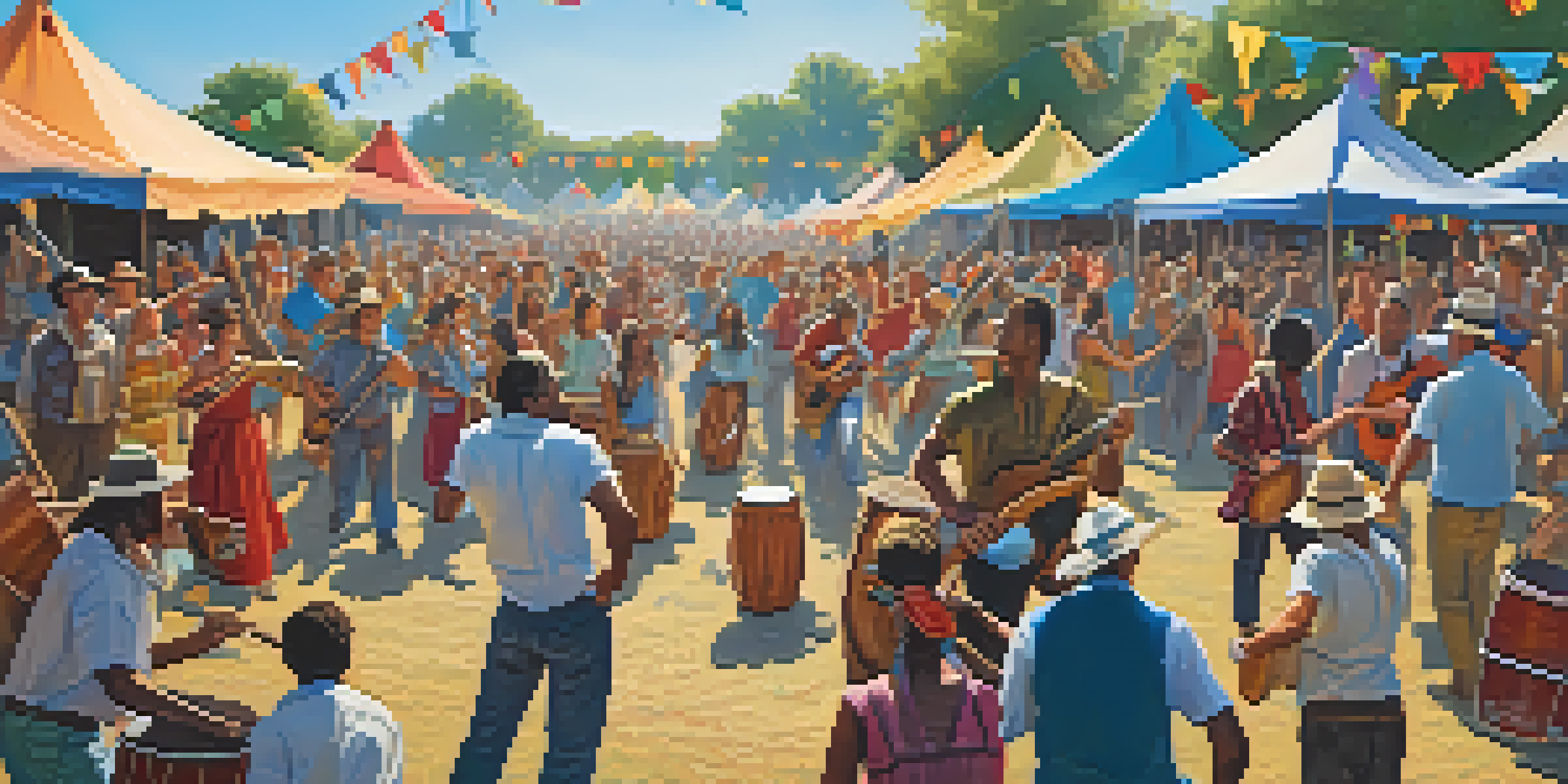The Spiritual Significance of Folk Music Traditions

Understanding Folk Music as a Spiritual Expression
Folk music serves as a profound expression of cultural identity, often intertwined with spirituality. It encompasses stories, rituals, and beliefs handed down through generations, reflecting the values and experiences of a community. This genre resonates deeply with listeners, evoking emotions and memories tied to personal and collective histories. Through melodies and lyrics, folk music becomes a voice for the soul, connecting people to their roots and to one another.
The Role of Oral Tradition in Spiritual Practices
Oral traditions play a crucial role in preserving the spiritual essence of folk music. Many songs are passed down verbally, retaining their meanings and significance over time without written records. This method ensures that the music remains dynamic, adapting to contemporary contexts while keeping its core message intact. As a result, each rendition can become a unique spiritual experience, bridging past and present through shared narratives.
Folk Music and Cultural Identity
Folk music profoundly expresses cultural identity, intertwining stories, beliefs, and spirituality passed down through generations.
Healing and Folk Music: A Spiritual Connection
Folk music often serves as a tool for healing, both emotionally and spiritually. Many cultures incorporate songs into rituals designed to cope with grief, celebrate milestones, or invoke blessings. For instance, lullabies soothe children, while chants during ceremonies elevate communal spirits. These musical elements create a sense of belonging and provide comfort, reinforcing the idea that music can be a source of solace during life's challenges.
Rituals and Festivals: Celebrating Spirituality through Music
Festivals and rituals are vibrant showcases of folk music's spiritual significance. These gatherings often feature performances that honor deities, seasons, or historical events, making music a central element of the celebration. Participants engage not just as spectators but as active contributors, fostering a sense of unity and shared purpose. Through these communal experiences, folk music becomes a living testament to cultural heritage and spiritual beliefs.
Healing Power of Folk Music
Many cultures use folk music as a healing tool in rituals, providing comfort and a sense of belonging during life's challenges.
The Symbolism of Instruments in Folk Music
Instruments used in folk music carry rich symbolism and spiritual meaning. For example, the drum often represents the heartbeat of the earth, while string instruments might evoke the threads of connection between the past and present. Each instrument contributes to the overall spiritual narrative, enhancing the emotional weight of the songs. This symbiotic relationship between music and instruments elevates folk traditions to a sacred experience.
Cross-Cultural Spiritual Connections in Folk Music
Folk music transcends borders, creating cross-cultural connections that highlight shared spiritual themes. While melodies and instruments may vary, the underlying messages of love, loss, and hope resonate universally. Collaborative projects often emerge, bringing together artists from different backgrounds to create music that honors diverse spiritual traditions. This fusion not only enriches the folk genre but also fosters understanding and respect among cultures.
Revival of Folk Music Today
A modern resurgence in folk music among younger generations showcases a blend of traditional and contemporary styles, highlighting a desire for authentic spiritual expression.
The Modern Revival of Folk Music and Spirituality
In recent years, there has been a resurgence of interest in folk music, particularly among younger generations seeking authentic expressions of spirituality. Artists are reinterpreting traditional songs, blending them with contemporary styles while maintaining their spiritual roots. This revival highlights a yearning for connection in an increasingly fast-paced world, reminding us of the power of music to ground us in our spiritual journeys. It’s a beautiful blend of old and new, preserving heritage while embracing innovation.
Conclusion: Folk Music as a Spiritual Legacy
Ultimately, folk music serves as a vital spiritual legacy, encapsulating the essence of human experience. Its melodies and lyrics not only entertain but also educate, inspire, and heal. As we continue to explore and embrace these traditions, we honor the voices of our ancestors and keep their stories alive. The spiritual significance of folk music is a reminder of our shared humanity, weaving a tapestry of connection across time and space.